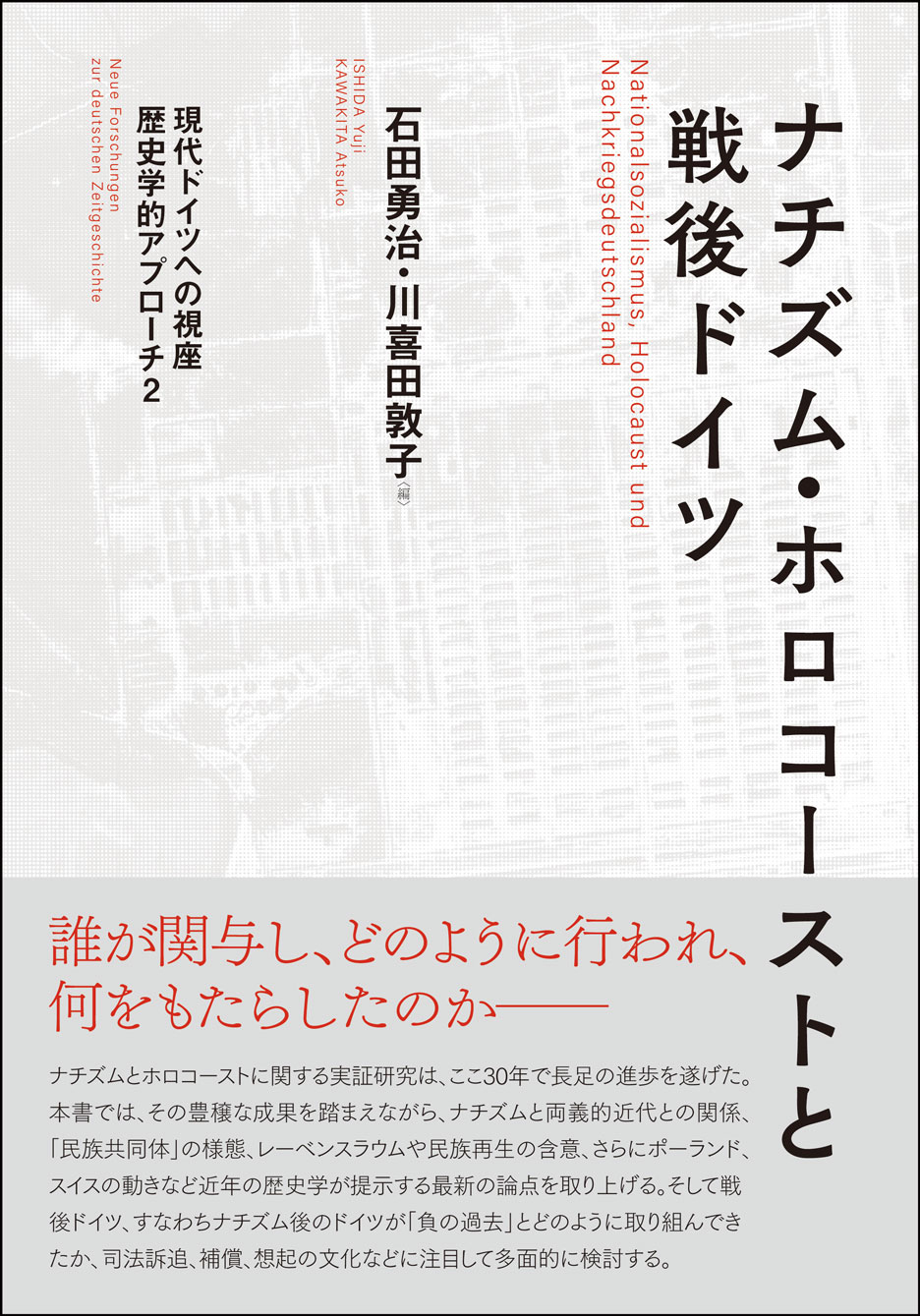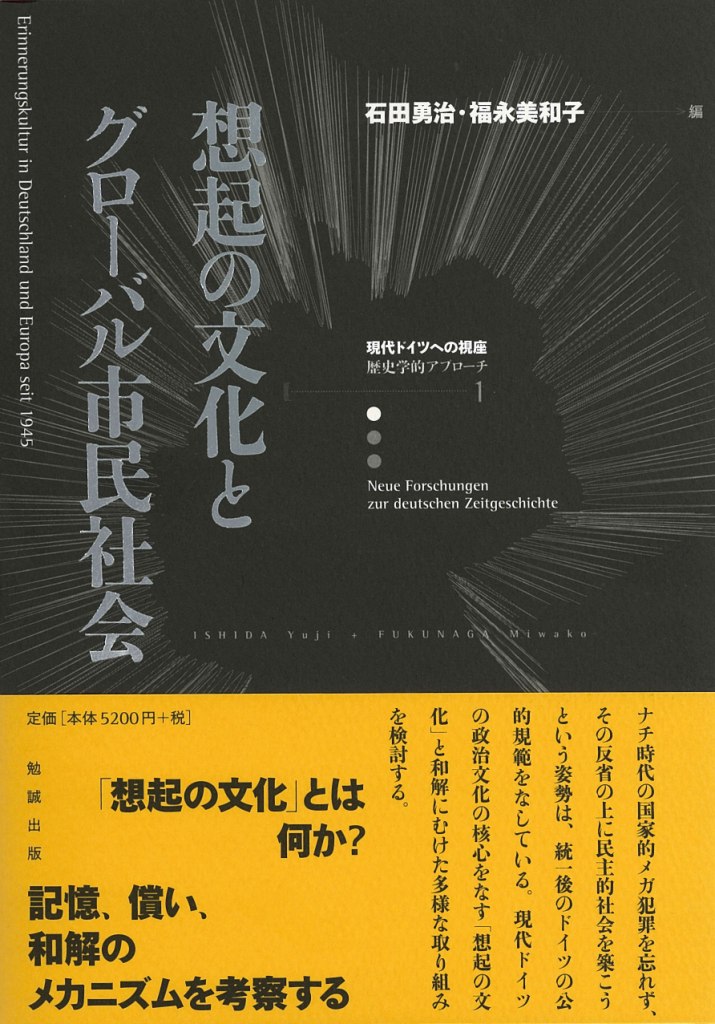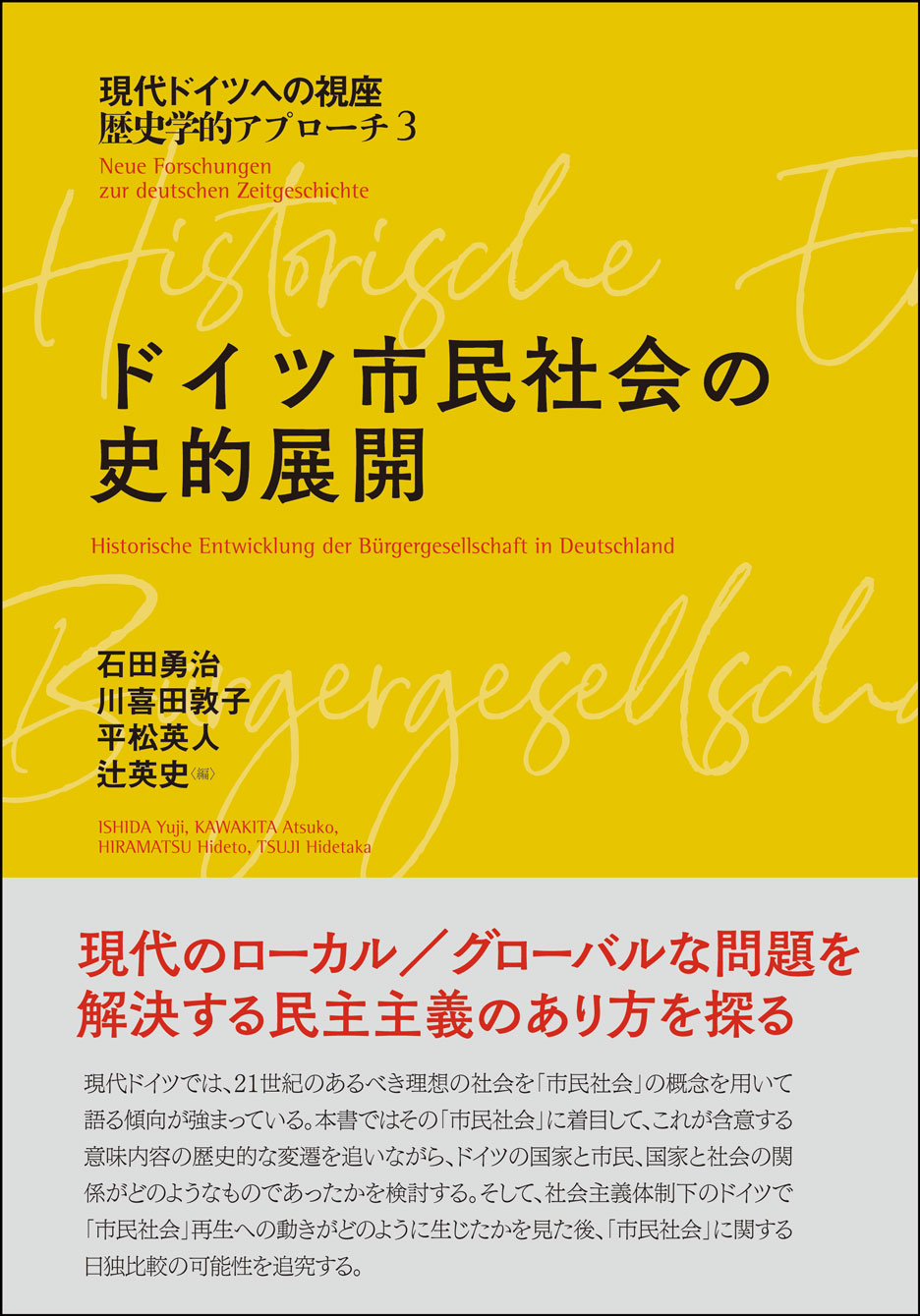
Title
Perspectives on Contemporary Germany: A Historical Approach (2) Nazism, Holocaust to Sengo Doitsu (National Socialism, Holocaust, and Postwar Germany)
Size
384 pages, A5 format, hardcover
Language
Japanese
Released
September, 2020
ISBN
978-4-585-22513-3
Published by
Bensei Publishing Inc.
Book Info
See Book Availability at Library
Japanese Page
In Germany, “contemporary history” was established as an academic field in the early 1950s following the end of the Allied occupation after World War II and the formation of East and West Germany. After numerous Germans’ fanatical worship of Hitler and Germany’s resounding defeat in the disastrous war, memories from the Nazi era were still fresh. Why did the former German Empire come to such a tragic end? The study of contemporary German history in postwar Germany began with this question.
There are at least three indispensable elements in understanding contemporary German history. The first is the experience of national socialism, the Holocaust, and World War II; the second is the division of Germany into East and West and the rise of East German dictatorship; and the third is the development of freedom and pluralistic democracy against totalitarianism including the movement for European regional integration and East Germany’s inhabitants’ resistance to dictatorship, which paved the way for the “Peace Revolution” of November 1989.
Today, research into contemporary German history is being conducted in relation to one of these elements. Although the first element—the experience of national socialism, the Holocaust, and World War II—does not get as much attention as it once did, it still continues to attract widespread public notice. This is because historical research in this field has made great progress, and new questions for further development of research have been raised.
This book, the second volume in the series Perspectives on Contemporary Germany: A Historical Approach, considers contemporary Germany from a historical perspective, takes into account the achievements at the forefront of research on national socialism and approaches postwar German history from the perspective of examining post-Nazi history.
The book is divided into three parts.
Part I, Approaching Ambivalent Modernity, questions the relationship between national socialism and “modernity.” The sociologist S. Bauman argued that European modernity after the Enlightenment made the Holocaust imaginable and possible, and the historian D. Peukert viewed national socialism as a manifestation of modernization’s negative potential, calling it “pathology of modernity.” Their works have prompted remarkable progress in the research on national socialism and caused a paradigm shift in studies on the Holocaust. The papers in this chapter are getting inspired from those new research trends.
Part II, National Socialism and Holocaust during World War II, examines the violence that took place in various parts of German-occupied Europe. How did the outbreak of the war of aggression affect national socialism and what changes did European countries undergo? This question is asked with reference to the experiences of Germany, Poland, and Switzerland.
Part III, Germany after National Socialism, focuses on Germany after 1945 and examines how it dealt with the aftermath of World War II and national socialism, focusing on aspects like the prosecution of perpetrators, relief for victims, and formation of memories.
(Written by ISHIDA Yuji, Professor, and KAWAKITA Atsuko, Associate Professor, Graduate School of Arts and Sciences / 2021)
Related Info
Volume 1: Souki no Bunka to Global Shimin-Shakai (Remembrance Culture and the International Community)
ISHIDA Yuji, FUKUNAGA Miwako (eds.)
https://www.u-tokyo.ac.jp/biblioplaza/en/C_00111.html
Volume 3: Doitsu Shimin Shakai no Shiteki Tenkai (Historical Development of Civil Society)
ISHIDA Yuji, KAWAKITA Atsuko, HIRAMATSU Hideto, TSUJI Hidetaka (eds.)
https://www.u-tokyo.ac.jp/biblioplaza/ja/G_00125.html



 Find a book
Find a book






